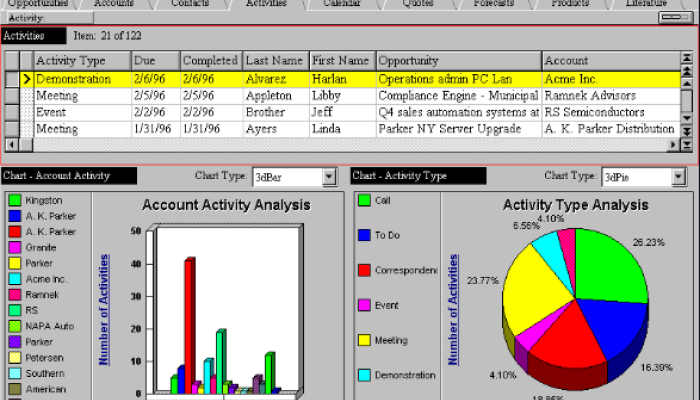
Rachel Alexander is a seasoned sales leader with a career spanning the entire client-facing side of organizations. She excels at driving revenue growth, building high-performing teams, establishing systems to scale high growth organizations, and cultivating lasting and trusting client relationships. Her success in the GovTech sector is a testament to her passion for serving public servants and those who work for her. Rachel splits most of her time between Boston and San Francisco with her daughter and son. She longs to spend more of her time hiking, running, exploring different cities, and reading.
1. You’ve been a sales leader for over 5 years now. How did you know leadership was right for you? Do you ever miss being an individual contributor?
I didn’t know if leadership was right for me. I was offered the opportunity to try it and I’ve never looked back. It’s not for everyone, but it suits me well. Yes, I miss being an individual contributor. I enjoy the connections made with customers and the simplicity of what I believe is the ultimate job of a salesperson: to swiftly usher a prospect to the yes or a no decision that is best for them. But as an individual contributor, I missed having a more strategic role - one in which I could help set company direction and put the pieces in place to drive the company’s success. I find the sales leader role very fulfilling. I still get to be involved in some sales cycles and I get some (limited) direct exposure to our customers. I also get to work with sales reps to problem solve how to pitch our product and structure a deal most effectively. While I miss the personal satisfaction that comes with closing my own deals, I have the opportunity to build a team with a shared goal, the fulfillment of helping to build a company, and the challenge of converting company goals into executed initiatives.
2. You now run a team that sells tech to governments. What is the industry like? What are the biggest challenges? What are the upsides?
I love selling to governments. Public servants and governments often have an unearned reputation for being slow, bureaucratic, and indifferent. Of course that is sometimes true but I find it rare. I find public servants to be creative at solving challenges, deeply caring about their communities, and willing to put in a ton of sweat with very little appreciation. When selling in the B2B world, ROI and profit are typically high on the list of reasons that customers buy. In government, that is less often the case. There are a myriad of reasons and ways that governments buy, so I think you have to be a better salesperson to be effective in the B2G world. This is such a great time to be in B2G. Residents’ interest in their communities is on the rise, as are their expectations that the government will provide the kind of communication and service they’re used to getting in the private sector. As such, tax payers are willing for their governments to spend some money to have modern tools. This seems to have picked up especially in the post-COVID-pandemic world and as such, vendors are showing up building solutions for governments. It’s a very exciting time in this industry.
3. How do you motivate your reps to perform on a daily basis?
It’s about (1) understanding what drives each rep, (2) creating a job for them in which they can achieve their (and your) goals, and then (3) playing a support role on their team. Sales is a tough job. Reps are the front men and women out there all by themselves representing their company in the market. Even the best reps get hit by rejection constantly. The job is near impossible when a rep doesn’t feel like their manager and company has their back. So I try hard to align on that. Most of us have had sales jobs without that alignment and it feels awful. I’ve been fortunate to have and learn from a couple exceptional managers that empowered me to meet the company’s goals, our customers’ goals, and my own goals as well. I certainly have a responsibility to my CEO, the Board, and the stakeholders of my company, but my most important job is to support my reps. If I focus on that, and I have the right comp plan in place for my team, the rest will naturally fall into line.
3a. Similarly, how do you handle underperforming reps who miss their quota?
Even great reps can miss their quota once in a while. Understanding why is key. Did they have an incredible quarter last quarter during which they were able to pull some of their current quarter pipeline in early? Are they having a difficult time maintaining their historical close rates on a new product? Or is this a chronic problem spanning multiple quarters? One of the things I love about sales and sales management is that it is largely a simple mathematical equation. So I try to understand where each rep ison each variable in the equation.
- What does their pipeline look like?
- Is their pipeline 3-4x their quota?
- Is there a stage in their pipeline that isn’t converting to the next stage at the same rates as the rest of the team or at the same rate this rep has accomplished historically?
- Are they getting enough new deals into their pipeline?
- Is average sales cycle length drawing out longer than it has historically?
Understanding the issue and then collaborating with the the rep to fix that issue the following quarter is the first step. If you have a great, diverse, motivated team, then the solution can often be found in how other reps on the team are managing that piece of the sales equation. Of course, this all assumes that the underperforming rep has a growth mindset and goals they want to achieve. If not, then the issue is likely the rep and hiring the wrong people rather than an issue that can be resolved with coaching and collaboration.
4. You’ve been selling GovTech now for over 10 years, but previously you had sold medical equipment. Both industries are notorious for having long sales cycles. Which have you found more difficult and why?
Personally I found it more challenging to sell medical equipment. That market has been saturated for a long time by many vendors going after what is perceived to be a ton of money.Conversely, this is an exceptional and dynamic time to be in GovTech. Constituents—particularly younger generations—are more engaged, paying closer attention to government operations, and demanding higher-quality services than they have in the past. To meet these rising expectations, governments must adopt modern systems and software that support the same level of customer service people have grown accustomed to in the commercial sector. Taxpayers, especially younger taxpayers, recognize that this higher level of service requires investment and they are willing to pay the costs to have their service expectations met.In turn, vendors are showing up to fill this need and serve the public sector with great products that are uniquely for the needs of the government.
5. What's the one thing you’ve found that helps you be successful as a sales leader?
I have found that success as a sales leader is derived largely from the same traits that contribute to success as sales rep: trust. Trust allows both parties to sit on the same side of the table which is a far more efficient and effective position from which to lead… or sell for that matter. Sales reps (like prospects) need to trust that their leader is capable of setting effective direction and willing and able to support them in achieving their professional (and personal!) goals. Enabling someone to achieve things that are important to them unlocks incredible potential.
6. What is your favorite sales movie?
Frankly, I don’t have one. I find that most sales movies paint sales reps (and sales managers) as ruthless hunters out for the kill at all costs. Not about a rep helping their customer and their company to better their position. If readers know of a movie like that, please let me know.







